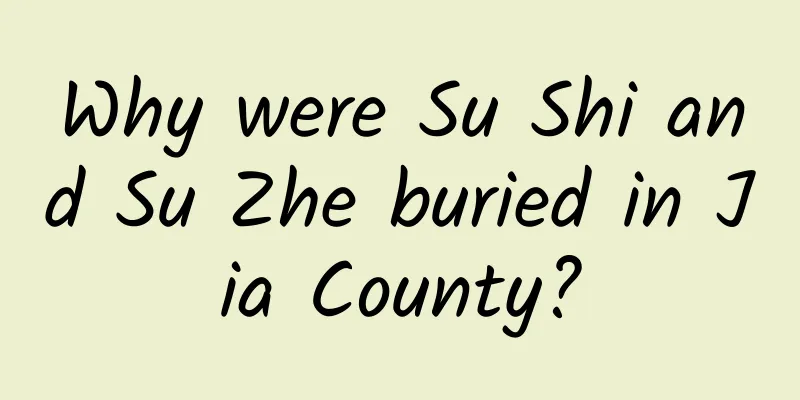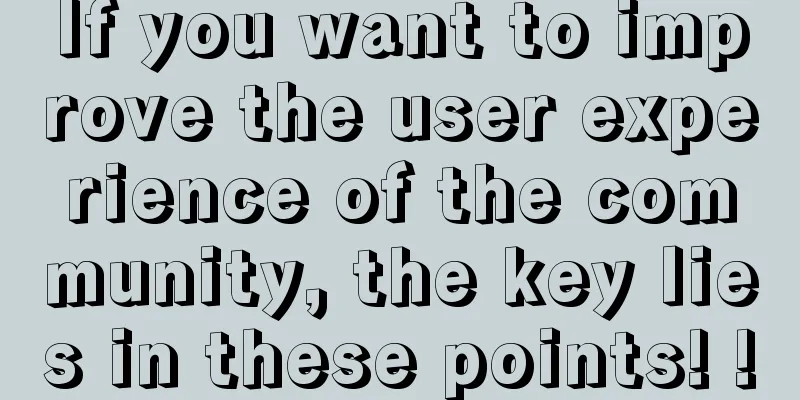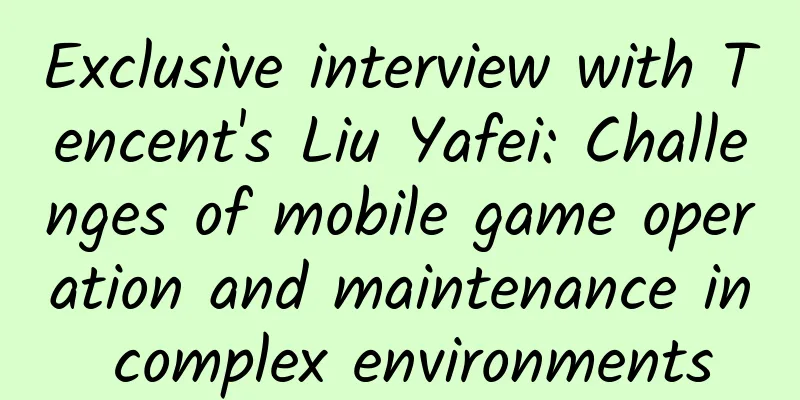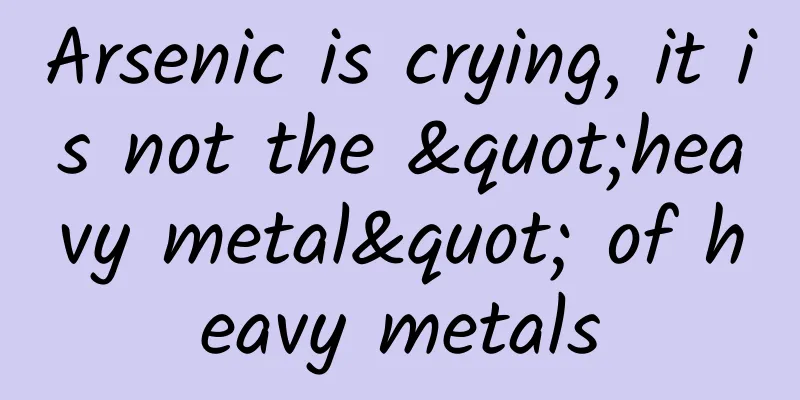Why were Su Shi and Su Zhe buried in Jia County?

|
On November 19, the Sichuan Provincial Institute of Cultural Relics and Archaeology and the Meishan Municipal Cultural Relics Bureau jointly disclosed a major archaeological discovery in Meishan, confirming that the Big Su Tomb in the "Su Tomb" is the tomb of Su Fu, grandson of Su Shi, and the Small Su Tomb is the tomb of Su Shan, the great-grandson of Su Shi and son of Su Fu. Su Shi was from Sichuan, so why were Su Shi and Su Zhe buried in Jia County, Henan? On July 28, the first year of Emperor Huizong's Jianzhong Jingguo reign (August 24, 1101 AD), Su Shi died of illness in Changzhou. In June of the following year, his brother Su Zhe followed his will and buried him in the Su family cemetery at the foot of Xiao Emei Mountain in Jiaxian County, Henan Province. Eleven years after Su Shi's death (in 1112 AD, the second year of Emperor Huizong's Zhenghe reign), Su Zhe, who called himself "Yingbin Yilao", died in Yingchang (now in the area of Xuchang) and was buried with Su Shi, accompanying his brother to rest in peace, known as the "Second Su Tomb". Su Xun, the father of the Second Su, had previously been buried in his hometown of Meizhou, Sichuan. More than 200 years later, in the winter of the tenth year of Zhizheng in the Yuan Dynasty (1350 AD), Yang Yun, the county magistrate of Jiaxian County, visited Su's tomb and felt that "the learning of the two gentlemen actually came from the teachings of their father, Mr. Laoquan", so he placed Su Xun's tomb between the two cemeteries. Since then, "Su Tomb" and "Second Su Tomb" have become "Three Su Tomb". The wheel of history has been rolling forward for more than 900 years since the brothers Su Shi and Su Zhe were buried successively at the foot of Xiao Emei Mountain in Jia County in the late Northern Song Dynasty. Over the past 900 years, although this Su Family Cemetery has gone through countless storms, it has not been seriously damaged due to the relay protection of many generations of admirers of Su Shi and the Three Su brothers, and it still stands proudly on this vicissitudes of life. The poems, articles and personalities of the Three Sus, especially Su Shi, have become more mellow through the passage of time, attracting famous officials and officials of all dynasties to admire them; many literati and scholars have come to pay homage to them and sing about them. In the Three Su Tomb Courtyard, poems and articles written by people who came to pay homage to the Three Sus can be seen everywhere, which can be called layers of "bullet screens" in the air. In addition, meticulous and rigorous scholars have also continuously examined and verified them, trying to clear the fog and dust brought by time so as to see the true face of history more clearly. What is particularly touching is that the local people in Jia County, where the Three Su Tomb is located, respect them with a simple and kind heart, love and protect them, and are proud that the two Sus are buried in Jia County. Surrounding the "Three Su Tomb", people who admire Su Shi and the Three Su have transcended the barriers of time and space. It has not only become a scene in the Central Plains, but also a garden that gathers emotions and a cultural space. The tombs of the two Su brothers in Jia and the tomb of Su Xun formed the "Three Su Tombs", which injected a rich cultural wealth into the Central Plains. The Three Su Tombs in Jia County and the Three Su Temple in Meishan, one in the south and one in the north, echo each other from afar, and their culture radiates to most of China. Looking through the "Poetry Collection" section of Su Shi's Complete Works, it is not difficult to find that the two characters that appear most frequently are "Ziyou" (Su Che's courtesy name is Ziyou). In these poems, "To Ziyou", "Answering Ziyou", "Thinking of Ziyou", "Sending to Ziyou"... the Su brothers exchanged trivial daily life and shared each other's joys, sorrows, anger and happiness. In his "Collected Works", Su Shi wrote many letters specifically to Ziyou. And in the letters he wrote to his closest friends, Ziyou's name can be seen everywhere. It can be seen that the two brothers are not only blood relatives, but also soulmates who respond to each other and share the same spirit. "I can bury my bones in the green mountains here, but I am saddened by the heavy rain at night. We will be brothers for generations, and we will have unfinished business in the world." Su Shi was imprisoned in Kaifeng for the "Wudai Poetry Case". He thought his time was up and wrote a suicide poem to his brother. People who are familiar with the two brothers know that the "night rain" is related to an agreement they made in their youth. At the beginning of their early years, when they were studying hard and were about to travel around the country, they saw Wei Yingwu's two lines of poetry, "How can I know that on a stormy night, we will sleep on the same bed again?" They were deeply inspired, so they agreed that after completing their life missions, they would not be greedy for fame, but retire early, enjoy the joy of leisure, sleep on the bed opposite each other, and listen to the night rain together. On the eve of his death in Changzhou, Su Shi was unable to see his brother Su Zhe for the last time, which became a great regret in his heart. According to records, Su Shi once mentioned to his friend Qian Shixiong, "Since my brother You was demoted again and returned home, I have never seen him again. This pain is unbearable." When the end of his life was approaching, did he think of the appointment of "facing each other in the rainy night" again? Although he failed to realize his dream of "facing each other in the night rain" during his lifetime, it is comforting that the brothers will be together after death, and the younger brother will always accompany his elder brother. The cypress forest at Su's tomb is like the rustling of night rain, which can be regarded as another form of "facing each other in the night rain". In 1969, local villagers discovered the tomb of Su Shi (Zhongnan) and his wife on the southeast side of the Three Su Tomb while farming. The epitaph records that "they were buried together on the last day of October in the fifth year of Xuanhe (1123) in the southeast corner of Xianying, Shangruili, Jiacheng, Ruzhou", proving that Jia County is the real tomb of Su Shi and Su Zhe. This is now generally recognized by the academic community and the public, and is an indisputable fact. There is a question that is often mentioned about the "Three Su Tombs" in Jia County: Why did Su Shi, who was originally from Meishan, Sichuan, and died in Changzhou, choose to be buried under Mount Song? In fact, many scholars have made great efforts to explore this mystery, which has become a research topic in the field of literature and history. There are countless related papers and works, and there is no unified conclusion. However, there are several views that are widely circulated by the public. There is a saying that Su Shi did not choose to be buried in his hometown because the journey was too long. In his later years, Su Shi was exiled to Danzhou, but returned to the north after being pardoned and died in Changzhou. If Su Shi returned to the west, he would have to cross the Qinling Shu Road, which would not be an easy task. Another frequently mentioned saying is that according to the official custom of the Northern Song Dynasty, all ministers who had held high-ranking positions in the court had to choose a burial site within 500 miles of the capital Kaifeng. Those who hold this view give the example that Ouyang Xiu, a famous official and great writer of the Northern Song Dynasty, whose ancestral home was in Jiangxi and who was born in Sichuan, was buried in Xinzheng, Henan. Fan Zhongyan's ancestral home was in Binzhou (now Bin County, Shaanxi), and he later moved to Wu County, Jiangsu. He died of illness in Xuzhou, Jiangsu, and was buried in Yichuan, Henan, etc. However, some people checked the "Song History·Rituals" and found that there were no relevant regulations or records in it. Cheng Minsheng, a professor at Henan University and an expert in Song Dynasty history research, mentioned, "As far as I know and have checked, there is no such record. I also know that Han Qi, Sima Guang, and Wang Anshi, important officials of the Northern Song Dynasty, were not buried in the Central Plains. Sima Guang returned to his hometown, Xia County, Shanzhou, and Wang Anshi was buried in Jiangning Banshan Garden." Regarding the relationship between Su Shi and Jia County, many current materials mention such a scene: Su Shi once passed by Jia County or its vicinity during his lifetime, praised the mountain here as similar to Mount Emei in his hometown, named it "Xiao Emei", and asked his brother to bury him here after his death. But this view is not set in stone. Mr. Pan Minzhong, who graduated from the History Department of Henan University in 1982 and has been engaged in the research of Central Plains history and culture for a long time, is the honorary president of the Pingdingshan Three Su Culture Research Association. In his paper "The Real Reason Why the Two Sus Were Buried in Jia", which was included in the monograph "Pingdingshan Three Su Culture Collection" (Zhongzhou Ancient Books Publishing House), he combed through the materials and argued that "Su Shi praised the mountains in Jia County as his hometown Mount Emei and told his brother to bury him there". This statement was first proposed by Cao Shike, a Jinshi in the Yuan Dynasty, in "Records of the Ancestral Hall of the Three Su Masters". From the Ming and Qing Dynasties to the present, this statement has been held by the majority, but it is not impeccable. Pan Minzhong proposed that the reason why the two Su brothers were buried in Jia was found in the "Re-Sacrificial Article to My Late Brother Duanming" written by Su Zhe on the first day of May in the first year of Chongning (1102 AD), "Xianlong is in the west, and the mountain of Laoquan is next to it. It has been said since ancient times. If it is impossible to do so, how can it not be cherished. Although the place is Jiakuo, the mountain is called Emei. It is the will of heaven, how can it be man's!" These sentences mean that he originally planned to return his bones to his hometown Sichuan in the future, but man's plans are not as good as heaven's. Although this place is in Jiakuo, the mountain here is called Emei just like the mountain in our hometown. It seems that all this is arranged by heaven, not determined by our subjective wishes. Pan Minzhong analyzed this passage and proposed that the mountain in Jia County was not praised as "Little Emei" by Su Shi because he saw Mount Emei in his hometown, but it was naturally named the same as Mount Emei in Sichuan, and was originally called Emei. Moreover, the burial place in Jia County was not chosen by Su Shi during his lifetime, but was chosen by Su Zhe based on the meaning of a letter Su Shi wrote to him before his death. In the Northern Song Dynasty, Jiacheng was under the jurisdiction of Ruzhou. The Su family burial site in the col of Xiao Emei Mountain on the south side of Song Mountain in Juntai Township, Jia County (the location of the Three Su Tomb today) was originally selected by Su Zhe, who lived in Yingchang, for his daughter-in-law Huang (who was called Balangfu in the clan). Su Shi, who was seriously ill in Changzhou, wrote in a letter to his brother, "If I die, bury me under Song Mountain, and you will write an inscription for me" (derived from Su Zhe's "Epitaph of Mr. Dongpo"), and stated that his burial site was decided by his brother, and proposed that there was no need to spend money to buy land, and the Su family cemetery under Emei Mountain in Jia County, Central Plains, which had been prepared for Balangfu, could be used. "If Balangfu can use it, I can use it." "If you spend another ten strings of cash to buy land, why not keep it for burial? Don't follow the customs." The area around Songshan where Jiaxian is located is rich in soil and deep in water. There are good reasons why it is the resting place chosen by Su Shi and his brothers. Jiaxian is located in the west of central Henan, on the south of Songshan and on the bank of Rushui River. In ancient times, it belonged to Ruzhou and has always been known as a "treasure land". It is the hometown of Zhang Liang, a military strategist in the early Han Dynasty. Although the Central Plains is not the hometown of the three Su brothers, they do have a deep affection for Mount Song in the Central Plains. In the second of "Three Poems on Farewell to Ziyou and Late Farewell", Su Shi wrote: "My father loved to live in Luocheng, and now I am also passing the foot of Mount Song. How dare I choose a house in the south of the water? I will try to buy bamboo from Yichuan. I heard that there are good springs in Mount Gaoshan, and they flow through the forest beside the city and pour out ice and jade. I can imagine the thatched hut reflecting the water, and the two old men facing each other as clear as swans." Su Che served as the governor of Ruzhou for four months in 1094. When he was demoted and left Ruzhou to go south, he bought a field and a shop in Yingchang at the southeast foot of Mount Song to settle his children. In April 1100, Su Che was pardoned and returned to Yingchang to live until his death. In his article, Su Che also mentioned "Bury my young son in Songchang, the soil is thick and the water is deep." Su Xun, the father of the second Su, also liked the Central Plains. He even considered moving his family to the vicinity of the capital because of the difficult roads to his hometown in Sichuan and the inconvenience of traveling to Bianjing. There is a poem as evidence: "I love Songshan Mountain after traveling all over the country, so I want to buy a piece of land to live with my wife and children." |
<<: Can I not wash my face when the weather is cold? The answer is unexpected
>>: Predicting Flu Trends: Harder Than You Think
Recommend
7 Things New Programmers Should Know
Senior software developers share some experiences...
Community SOP: From attracting new members to conversion and daily maintenance table
Nowadays, there are more and more group chats, bu...
How to distinguish between bidding and natural traffic?
Does anyone know how to distinguish between biddi...
The latest APP promotion ASO optimization experience sharing in 2015
In the era of mobile Internet , ASO has risen to ...
An analysis of the operation of a maternal and infant APP product activity
This month we planned a WeChat fan-raising activi...
Does the "demon boy" Nezha have ADHD? You will understand everything after reading this!
In the hit movie Nezha: The Devil Boy Conquers th...
Sony NW-ZX505, the walking vinyl record player
If you are a painting genius, then you must have ...
The boiling point of water is not necessarily 100 degrees. Human body fluids can also boil. Do you believe it?
The freezing point of water is 0℃ and the boiling...
Highest temperature: 150°C, lowest temperature: -100°C - How do astronauts on the space station escape the heat?
It's that time of year again when it's co...
Complete success! Tianzhou-2 completed the first rotation test using the space station's robotic arm
At 6:59 am Beijing time on January 6, 2022, after...
The difference between primary and advanced operations: one trick can achieve twice the result with half the effort
I once had the following conversation with a read...
Why do users click on your game feed ads but fail to convert?
The reason why those real users did not convert m...
It took only 6 years for mobile advertising to defeat PC and become the protagonist of digital advertising. What happened in the advertising market?
Seven years ago, Apple iPhone 4 was released and ...
More than 2,000 years ago, this "little snake" witnessed the central government's jurisdiction over Hainan.
In the long history of Hainan, there is a preciou...
Use this "retention rate model" to calculate how far your product is from making a million a day?
Almost all operational work is carried out around...









